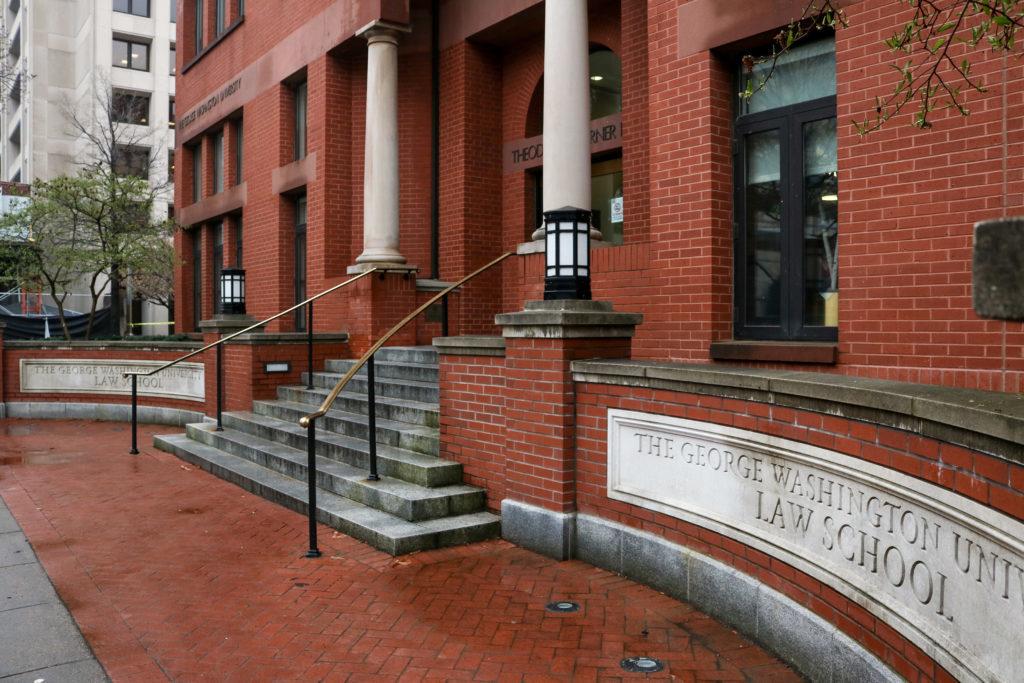The law school renewed a corporate law program, allowing students to work and learn in New York City, for another three years after a successful pilot semester this spring, the program’s director said.
Lawrence Cunningham, a law professor and the director of the GWNY program, said the project, which sent 12 law students to learn and work alongside corporate law professionals in New York City, helped students gain hands-on experience while learning from law school alumni. Faculty and students said the program offered access to the top corporate law market in the country and some of the nation’s top firms, giving students important experience in the corporate and business law field that is not as prominent in the District.
“There are few better places to be a law student than Washington,” Cunningham said. “The one area where it’s not quite as strong as another area is corporate and business law, where New York is the capital for financial, business and corporate law.”
The program was anchored in four key components: mentorship, networking, academics from the classes taught by Cunningham and the other alumni and real-world practice — where students were able to shadow and work with alumni, Cunningham said. He said these four pillars created a comprehensive experience for students because it blended academics and professional training.
“It’s like a real job, they’re getting exposure to the real-time practice of high-end corporate law.”
Law students must apply for the program, which allows them to work and follow attorneys in prominent law offices and agencies like the Security and Exchange Commission or the Federal Reserve Bank of New York. Students spent about 24 hours a week working in these externships for three credits.
“They’re dressed up, they’ve got desks and phones and computers and a boss and assignments and interactions,” Cunningham said. “It’s like a real job, they’re getting exposure to the real-time practice of high-end corporate law.”
In the program, students take three or four two-credit elective courses taught by alumni in the law offices where they work. Cunningham said the law school has a strong base of alumni in New York City, which made it easy to find lawyers and legal experts to teach courses. The elective classes during the first semester of the program covered topics like banking law, securities regulation, bankruptcy law and legal drafting.
“They all were very engaged, they learned a tremendous amount, obviously academically, but also just this environment, meeting all of these people, having a distinctive experience in New York in the business law area,” Cunningham said. “There is no other program like this.”
Cunningham taught the co-requisite class, Business Lawyering, which each of the 12 students in the program were required to take to tie together what the students were learning in their field work. The class teaches skills – like how to handle confidential information or deal with ethical dilemmas – that are relevant to all the program’s students, no matter where they were working.
The program grew out of an existing summer law school project launched five years ago in New York, in which alumni hosted non-credit workshops for incoming, current and graduated law students each week at different law firms. That program is still in operation and will be held again this summer, Cunningham said.
He said the summer program encouraged New York City alumni to become more involved with the school, helping to launch the full semester program, beginning last January, featuring alumni as adjunct faculty or mentors.
“We’ve got a lot of really loyal devoted alumni in the region who are very generous with their money and with their time,” he said.
The program will be available to students next spring on an open application. Students must have a field office job or externship secured to join the program, Cunningham said.
Bryant Lee, one of the 12 student participants, said the most valuable part of the program was not the field experience gained at his externship in New York bankruptcy courts, but the small class size and one-on-one time with alumni adjunct professors.
“We’ve got a lot of really loyal devoted alumni in the region who are very generous with their money and with their time.”
“It’s a lot more intimate and the people who are teaching these classes, they’re at the top of their fields and to be in such a close environment with them and to pick their brains on a weekly basis, it’s a unique experience,” he said.
Phil Tafet, a third-year law student, completed his field work at the Manhattan District Attorney’s office in preparation for a career as a prosecuting attorney. Tafet said the networking events were among highlights of the program.
In one instance, Tafet said he met members of the Ricketts family including Thomas Ricketts, owner of TD bank and the Chicago Cubs, at a fundraiser for the American Museum of Finance. He said learning from attorneys at some of the country’s top firms made the program special.
“Being able to go to class at those law firms which are incredibly prestigious law firms, and then be taught by the best lawyers in these specific fields was an incredible rush,” Tafet said. “As a young professional and an upcoming lawyer, being able to walk into those offices and just interact with those attorneys, in my opinion that’s the best type of learning.”





